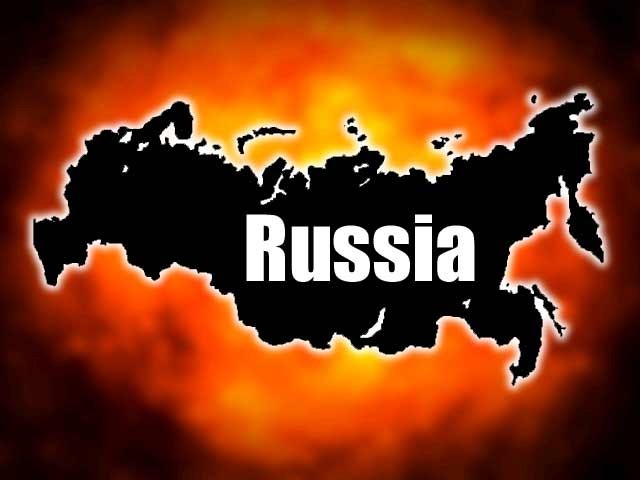UNITED NATIONS (AP) - Russia vetoed a U.N. resolution declaring Sunday's referendum on the future of Ukraine's Crimean Peninsula illegal, and close ally China abstained, underlining Moscow's international isolation.
Supporters of the U.S.-sponsored resolution knew Russia would use its veto. But they put the resolution to a vote Saturday morning to show the strength of opposition to Moscow's takeover of Crimea in the U.N. Security Council and got China to abstain rather than join Russia in casting a veto, which it did on three Western-backed resolutions on Syria.
The final vote on Saturday was 13 members in favor, China's abstention, and Russia as a permanent council member using its veto.
``The resounding message from today's vote is that Russia stands isolated in this council and in the international community,'' Britain's U.N. Ambassador Mark Lyall Grant told the council after the vote.
``Russia alone backs this referendum. Russia alone is prepared to violate international law, disregard the U.N. Charter and tear up its bilateral treaties,'' he said. ``This message will be heard well beyond the walls of this chamber.''
Crimea, which hosts Russia's Black Sea Fleet base, became the hotbed of tensions in Ukraine after its pro-Russia president, Viktor Yanukovych, fled last month following protracted anti-government protests and outbursts of violence. Russia refuses to recognize Ukraine's new government, which it says came to power in an ``illegal coup d'etat'' and has now effectively taken control over Crimea in what has turned into Europe's greatest geopolitical crisis since the end of the Cold War.
The West says a referendum on whether to split off Crimea and make it part of Russia is illegal, violates Ukraine's constitution, and will not be recognized and it is threatening costly sanctions against Russia if it moves to incorporate Crimea.
The resolution would have reaffirmed the Security Council's commitment to Ukraine's ``sovereignty, independence, unity and territorial integrity.'' It would have declared that the referendum on whether Crimea should become part of Russia ``can have no validity, and cannot form the basis for any alteration of the status of Crimea.''
The vetoed resolution also urged all parties to immediately pursue a peaceful resolution to the dispute over Crimea through direct political talks something Russia refuses to do.
Before the vote, Russia's U.N. Ambassador Vitaly Churkin told the council it was no secret that he would veto the resolution.
``We cannot go along with its assumption that is declaring illegal the March 16 planned referendum,'' he said.
Churkin said the people in Crimea have a right to self-determination under the U.N. Charter and confirmed ``that we will respect the will of the Crimean people during the March 16 referendum.''
``We do not dispute the principle of the territorial integrity of states,'' he said. ``It is, of course, very important. It is also understandable that enjoyment of the right of self-determination as to separation from an existing state is an extraordinary measure, applied when future coexistence within a single state becomes impossible.''
U.S. Ambassador Samantha Power accused Russia of violating the U.N. Charter's key principles that prohibit the use of force to acquire territory and respect for the sovereignty and territorial integrity of all nations principles she said Moscow agrees with ``and defends all around the world, except, it seems, in circumstances that involve Russia.''
``Russia has rejected a resolution that had peace at its heart and law flowing through its veins,'' she said.
``Under the U.N. Charter, the Russian Federation has the power to veto a Security Council resolution, but it does not have the power to veto the truth,'' Power said. ``Russia isolated, alone and wrong blocked the resolution's passage, just as it has blocked Ukrainian ships and international observers'' from entering Crimea.
China is traditionally very sensitive to the issue of territorial integrity because of Tibet and other restive areas.
China's U.N. Ambassador Liu Jieyi reiterated Beijing's support for ``the sovereignty and territorial integrity of all states.''
He called for a political solution and an ``international coordinating mechanism'' to explore a political settlement as soon as possible, all parties to refrain from escalation, and international financial institutions to help shore up Ukraine's faltering economy.
The council meeting was the seventh on Ukraine in just over two weeks, but the U.N.'s most powerful body has been unable to take any action because of Russia's veto power.
France's U.N. Ambassador Gerard Araud said the headlines Saturday will be quite clear: ``Russia has vetoed the U.N. Charter.''
``Things are simple force trumps law, the Russian veto says to us,'' Araud said. ``Faced with the savagery over international relations which have led to two world wars and which at present are costing the lives of thousands of innocent people in Syria and elsewhere, our duty is to uphold the fragile barrier of law.''
``To accept the annexation of Crimea would ... turn the United Nations Charter into a farce. It would mean that the sword settles disputes,'' Araud said.
Monday
August 25th, 2025
6:34PM









